Protect your pet from Ticks and Heartworm.
These parasites are not only uncomfortable for your pet, but if left untreated can cause very serious health problems and can be potentially fatal. Get to know the parasites that your pet is at risk from and learn how to properly protect them.
What types of ticks are common in Australia?
Check out below that will help you in identifying the Paralysis tick from other tick types commonly found on dogs in Australia.
Paralysis Tick
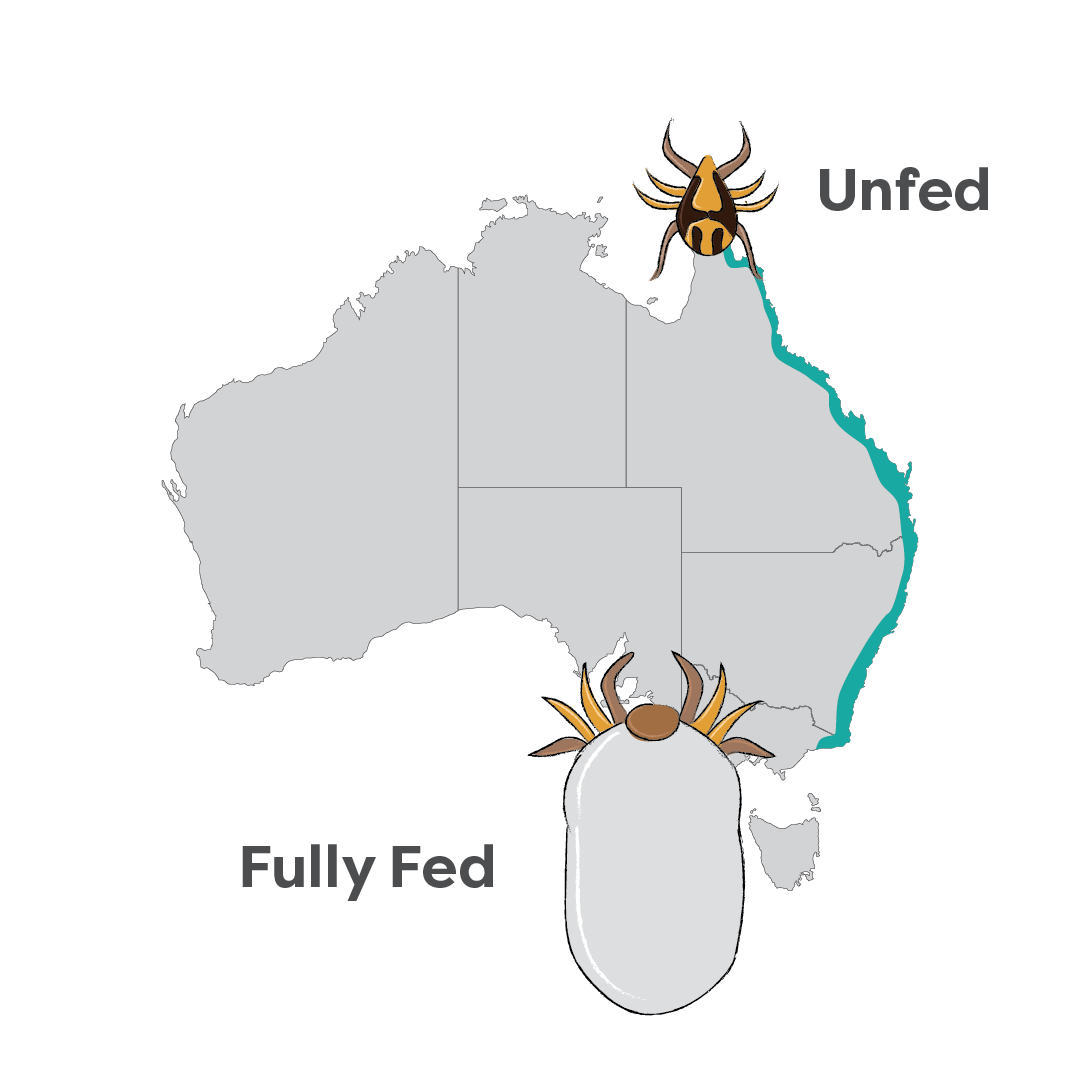
Cattle Tick
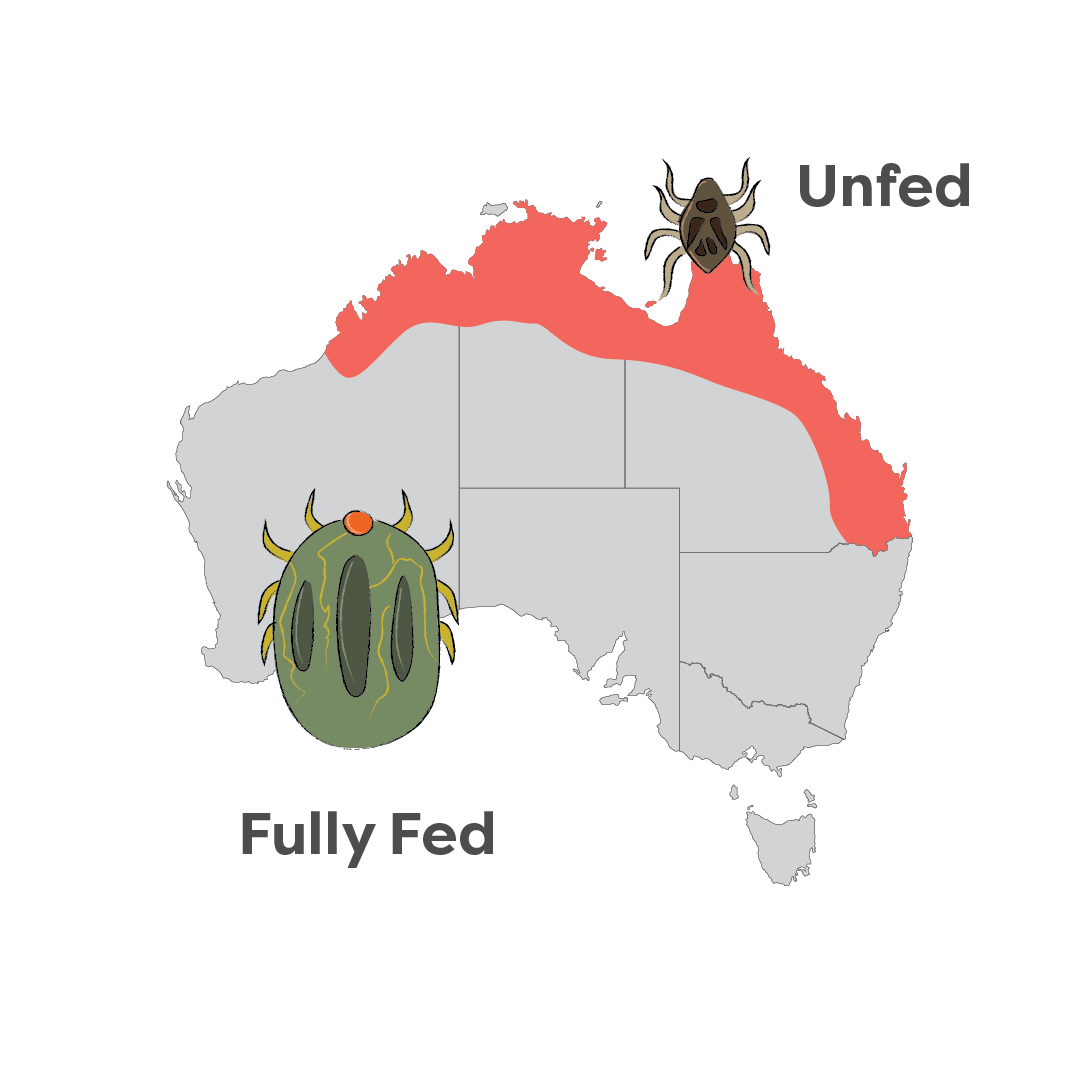
Bush Tick
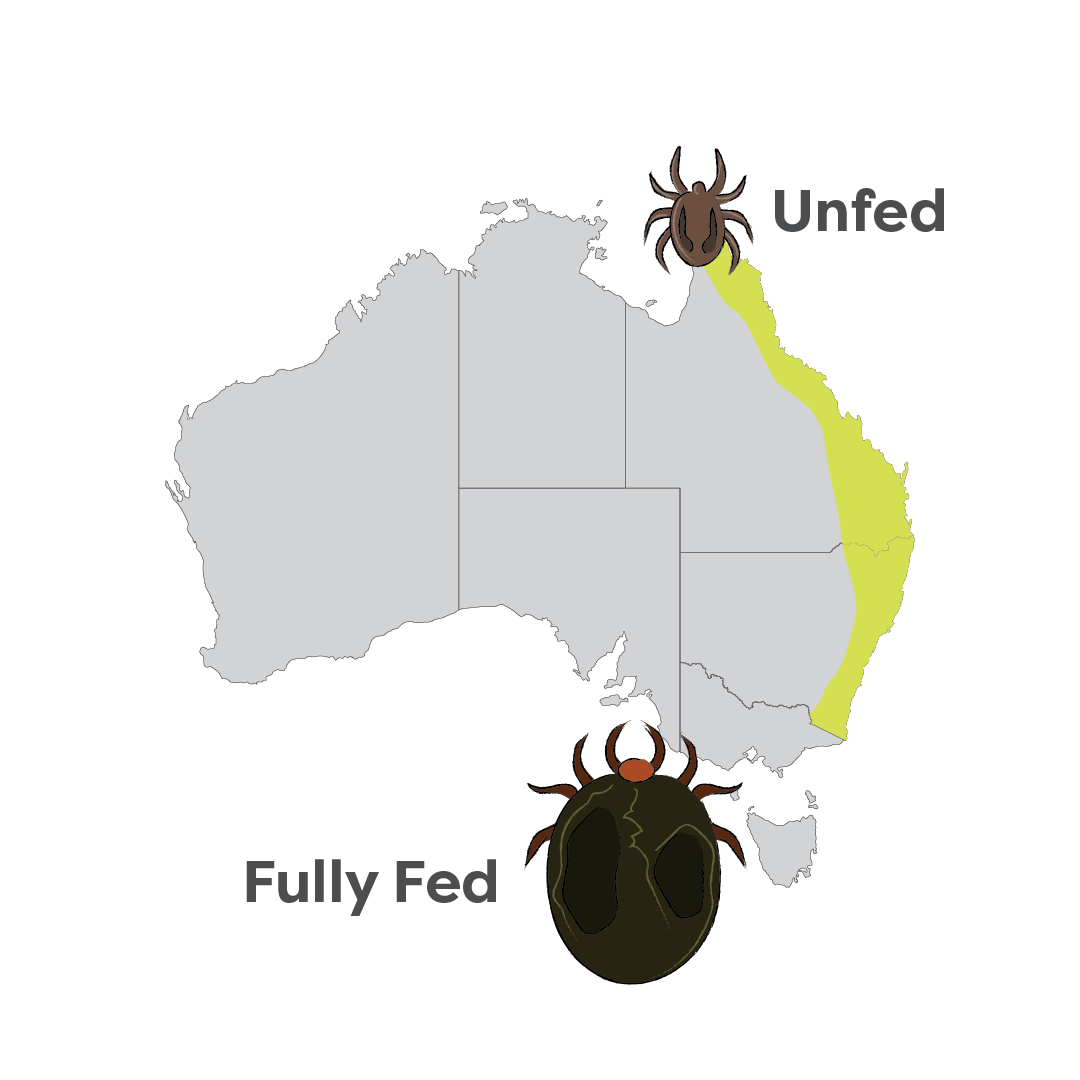
Brown Dog Tick
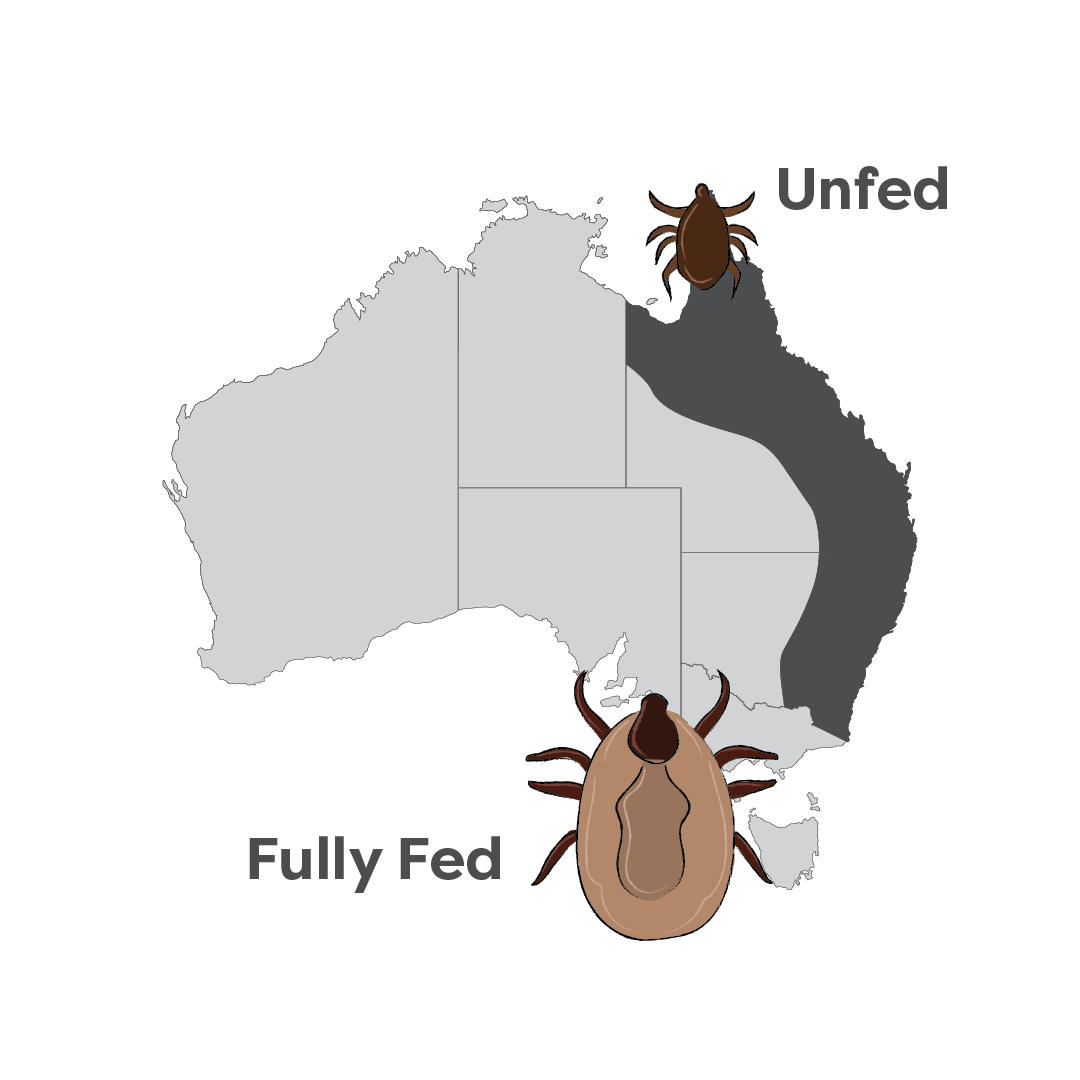
Common signs of Tick Paralysis:
WEAKNESS
If your pet is a little unsteady or wobbly in the legs, it could be a sign of Tick Paralysis.
VOMITING OR RETCHING
Dogs and cats will vomit from time to time but if you notice that your pet is vomiting more than a couple times a day – visit your Fur Life Vet immediately.
CHANGE OF BARK OR MEOW
If the pitch or volume of your pet’s voice is altered in a significant way, this could also point to a tick.
DIFFICULTY BREATHING OR COUGHING
Dogs will often pant heavily if they are affected by a Paralysis Tick. Listen for loud breathing and coughing.
Where to find ticks in your pet.
If ticks are attached near the eyes they can make the eyelids paralysed and stop blinking which can cause eyes to dry out and become damaged. Because the tick toxin also causes weakness and dilation to the food pipe, affected dogs and cats may retch and regurgitate their food, water or just frothy fluid. One serious complication of this is aspiration of fluid or food into the lungs which causes pneumonia.
Affected dogs and cats also may have difficulty swallowing which can cause fluid to build up in the mouth and throat which can make them choke. Tick paralysis also often causes difficulty breathing. If the paralysis becomes too advanced and the muscles involved with breathing become too weak, the dog or cat may not be able to breath sufficiently or at all.
Tick paralysis is progressive and potentially fatal.
Call into our clinic to talk to our reception staff about the best tick prevention for your pets today. Prevention is better than a cure.
Check out the infographic below, which will help you find those pesky little creatures.
Heartworm
What is heartworm?
As the name suggests, Heartworm is a serious and potentially deadly disease characterised by large, parasitic worms.
In dogs, adult Heartworm can grow up to 30cm in length, blocking the arteries leading to the lungs and infesting the heart. As a result, the heart is forced to pump extra hard to keep blood flowing, which can lead to heart failure. The disease can also severely damage other parts of the body, such as the liver and kidneys. It affects many types of animals, including domestic and feral dogs and cats, dingoes, foxes and ferrets.
How do dogs get heartworm?
Heartworm is spread by mosquitoes. Just one bite could infect your pet. At least 60 species of mosquitoes transmit heartworm disease – when they bite an infected animal, they suck blood filled with infant worms, which then develop inside the mosquito. When an infected mosquito bites another animal, your dog, it infects the animal with Heartworm larvae that develop and grow inside the dog eventually reaching the heart and lungs.

What is heartworm?
Just one mosquito bite is all it takes to infect your pet, even if Heartworm doesn’t seem to be a problem in your local area. Heartworm is more common in warmer climates but it has spread to all states in Australia.
If a mosquito bites an infected animal, then bites your pet, your pet is at risk of infection and death. As each new animal gets infected, the risk of Heartworm grows.
What can I do to protect my dog from heartworm?
Rather than risk heartworm infection and it’s traumatising treatment, it is highly recommended to protect your pet with preventative treatment.
A simple annual injection can protect your dog from Heartworm.
Yes monthly treatments are available however a recent study has shown that 40% of dogs that tested positive for Heartworm were actually on an owner given monthly treatment. The reason? It’s just too easy to forget a dose and it only takes one missed dose to leave your dog unprotected and vulnerable. For that reason we recommend dogs receive an annual injection.
What are the signs of Heartworm?
You usually don't see any symptoms until the infection has advanced however common symptoms are:
• a dry, chronic cough
• lethargy, fainting
• weight loss
• breathing problems
• difficulty with exercise
• ascites (where the abdomen swells up due to fluid build-up because the heart cannot pump normally)
What happens if my dog gets heartworm?
Your Fur Life Vet can test for heartworm in dogs however blood tests will not detect infection until the worms have matured into adults, about six months after the initial infection.
Can heartworm be treated?
It’s possible to treat heartworm in dogs, provided the disease has not already caused significant damage to the major organs. If you have to treat heartworm, your dog will require care for quite some time. Treatment is expensive and difficult, often requires hospitalisation, and may require harsh drugs to kill the adult heartworms. Some dogs don’t survive the process. After treatment, your dog may remain at risk due to dead worms blocking blood flow through the lungs.


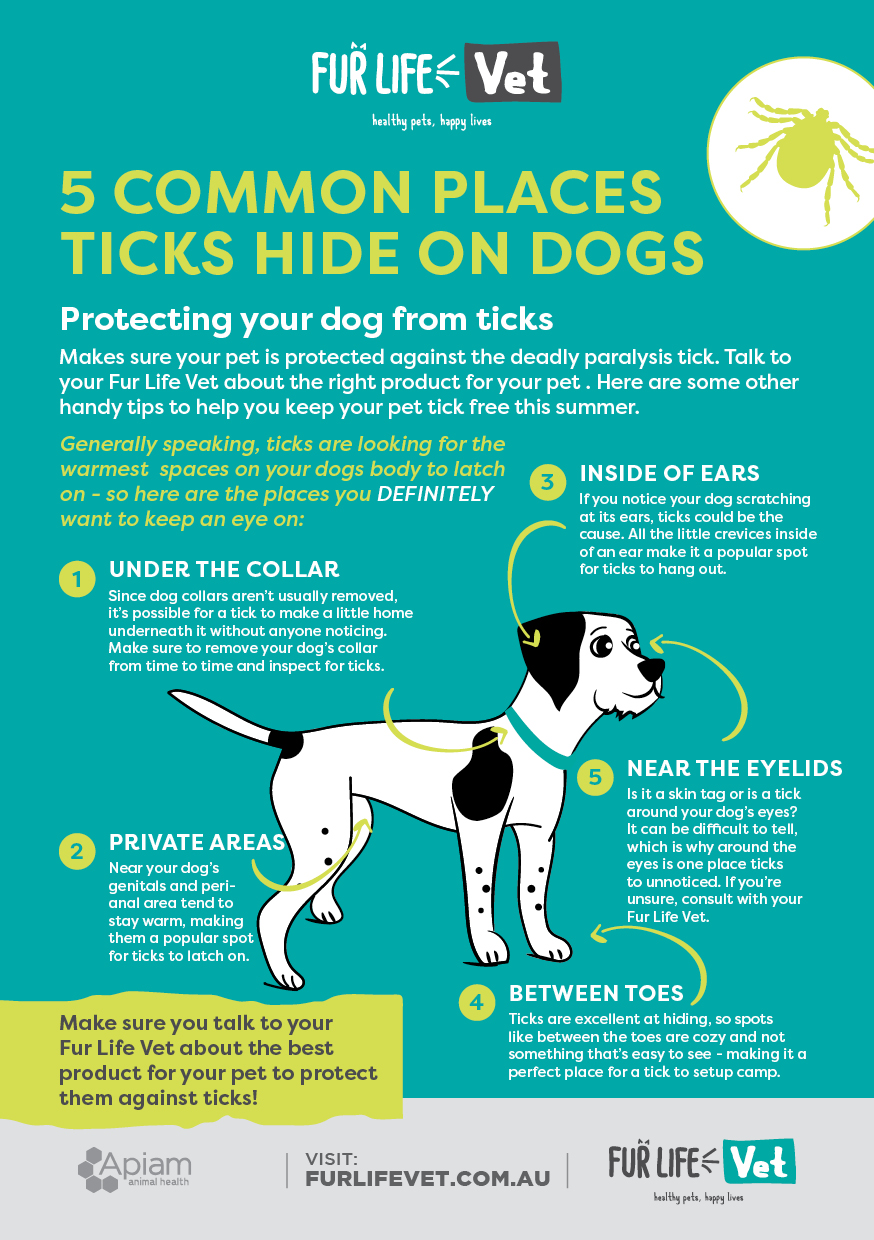

Recent Comments